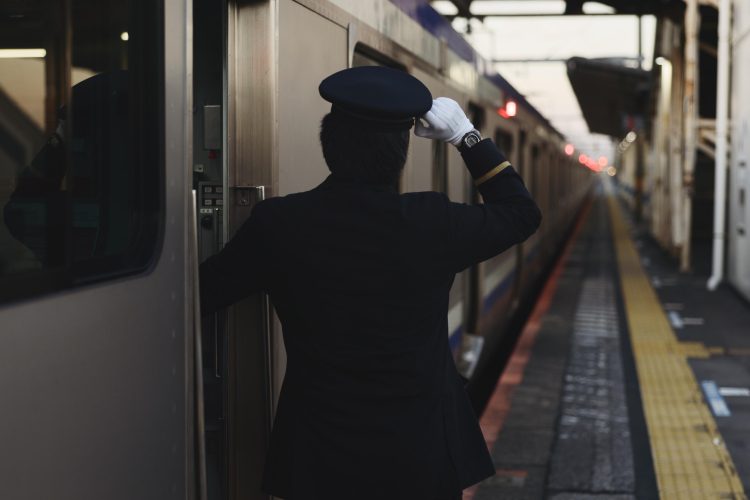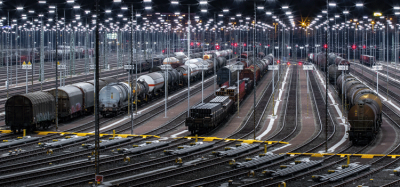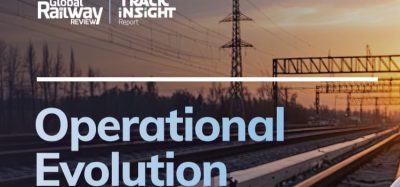“The beatings will continue until morale improves”
Posted: 11 April 2025 | Elizabeth Jordan - Global Railway Review, Poppy Pendolino | No comments yet
It’s hard not to have a sense of groundhog day in rail currently. It feels that we’ve, over the course of the last decade at least, repeatedly been led back to the promise of a great change / rebrand / innovative approach that will transform the way we deliver railways in Britain.


For many of us who have been in the industry for longer than that, we are keenly aware that this may well not be the final outcome. I don’t wish to appear to be a pessimist, so allow me to explain my reasoning:
Firstly, the already-confusing nature that seems to permeate the multiple Great British Railways organisations – from GBRTT, to SGBR, to GBRX – we seem to be falling into the usual railway trap of over-complicating something that simply doesn’t need to have such a level of complexity.
What’s needed is clarity in the immediate term, provided by a single organisation, setting a common goal and central strategies that span the main pressing rail topics e.g. accessibility (though a seemingly impossible goal due to unwillingness to invest), ticketing (in particular the still-awaited ticketing review), rolling stock (especially a clear strategy for renewals and new rolling stock), and infrastructure (eternally hoping to see a comprehensive rolling program of electrification that will enable us to properly plan for the UK‘s goals of net zero by 2050).
However one of the most pressing topics lies not in the miasma of delivery and operations but in the way that we treat our people. At every level, difference is unwelcome – take the inspiring Louise Haigh, unceremoniously pushed out of her transport role despite the Prime Minister having had full knowledge of her past when he offered her the position, or take Gareth Dennis, brutally dismissed from employment through the direct actions (one could even say bullying) of our own current rail minister, or look to ASLEF stating that a driver has been unfairly dismissed after raising a safety concern about fatigue during a meeting (which the rail operator, Hull Trains, denies).
We could argue that these are isolated incidents but we cannot ignore the wider issue of ongoing waves of industrial action and increasing levels of staff sickness across our industry. In August 2024, the RSSB reported that sickness absence rates in the rail industry are above the national average – the average lost-time rate in rail is 4.33%, compared to the national average of 2.13%. Industrial action, whether via true strike action or working to rule, is ongoing in waves across the sector and seemingly has been for nearly the last eight years at a minimum.
We cannot ignore that our colleagues at all levels are feeling overworked and underappreciated – and is it any surprise when we consider how they are presented, certainly in the popular media and in some cases by their own senior management or government departments as greedy, lazy, and replaceable with an AI-powered button pusher? Incidents of violent crime against rail workers are also on the rise, particularly over the last three years, with 3,330 recorded assaults on rail staff in the past financial year (2024-25), a rise of almost 25% in a year and double the 1,681 attacks recorded on rail staff three years ago. Everybody has the right to be safe at work, and rail staff are no exception; rail staff facing increasing attacks will undoubtedly be impacting morale at work.
It is all very well and good having GBR promise the sunlight uplands of the future of rail, but without addressing the fundamental needs of our people from the front line all the way through to depots and offices, nothing can truly improve in the railway industry.
We should be supporting and uplifting our people at all levels and in all ways, including by addressing the looming funding gap (which is guaranteed to only get worse with successive spending reviews). Only then will we be able to fully realise the potential of UK rail as a social and economic enabler.
According to Railway Industry Association (2022) for every £1 spent on rail, £2.50 of income is generated in the wider economy; why then is the industry not supported as the generator of jobs and opportunities in the wider economy that those of us working in this sector know it to be? For those of us facing inevitably yet more budget cuts and with Network Rail already working within a functional £1bn budget cut for CP7 it’s no surprise that morale remains low and that the quality of services in many areas continues to dip, especially as infrastructure failures continue to make the jobs of staff harder.
We aren’t only neglecting our infrastructure and (sadly, in some cases) our passengers, but also the staff who work so hard (and receive so little praise) to make our industry a success. GBR has a crucial opportunity to address these challenges but it needs to face the scale and truth of the issue – no more arguing that a ‘hackathon’ is what the industry needs – what the industry needs is respect, clarity, and proper funding.
About the Author
Poppy Pendolino currently works in UK rail.
Related topics
Operational Performance, Reform, Safety, The Workforce, Training & Development, Women in Rail
Related organisations
ASLEF, Great British Railways (GBR), Network Rail, Rail Industry Association, Rail Safety and Standards Board (RSSB)








